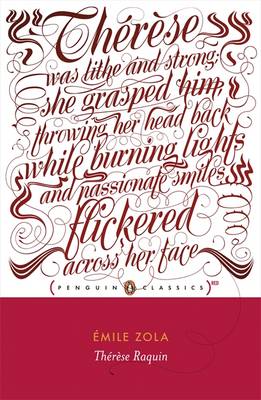Reviewed by celinenyx on
Thérèse is raised alongside her cousin Camille. A sickly child, Camille is bed-bound for most of his childhood, and Thérèse learns to keep her passions within herself in this languid and silent environment. Under the guidance of her aunt, Mrs Raquin, the two marry when they reach adulthood. Thérèse’s passions are awakened when she meets a sturdy farmer’s son, who is the opposite of Camille, whom she hates.
The plot of Thérèse Raquin could have come straight from a contemporary romantic novel, but it is anything but. It is a story of how passions can destroy the lives of anyone who comes into touch with them. Every scene is pervaded by gloom, melancholy, depression, and ultimately cruelty. If anything, I would call this novel decidedly Gothic. It is the tempers that make the characters monstrous, that leads them to revel in each other’s destruction. They are haunted by their past, by their actions.
While I think Zola does not have the psychological insight as some of his contemporaries had, there are bits of truthfulness in his dark narrative that I appreciated. One scene describes how crowds of people would flock to the Morgue, an institution open to the public, where recent corpses were showcased for several days. Zola describes, among other things, how groups of young boys would ogle the naked breasts thus displayed, chattering. Zola has a talent for showing the darkest, most deprived impulses people have – something which has caused him to be called amoral by most of his critics – which is interesting, but also skews the total portrait. Yes, people are selfish, greedy, and wilfully ignorant. Yes, they might live in squalor. Perhaps I am an optimist, but I believe that most people also form genuine connections despite or because of these.
I liked Thérèse Raquin better than Nana, which is a novel about the destructive quality of female sexuality. This theme is also incorporated in Thérèse Raquin, but perhaps less obnoxiously so. Ultimately, I think Zola has too low an appreciation for humanity, and his “scientific” and “objective” descriptions favour that which he knows would shock, offend, and cause a backlash.
---
Trigger warnings: sexual assault, murder, severe physical abuse in a romantic relationship, miscarriage due to physical abuse. A character is fully paralysed and emotionally abused by her carers. Graphic descriptions of decomposing corpses abound.
Reading updates
- Started reading
- 3 April, 2018: Finished reading
- 3 April, 2018: Reviewed
